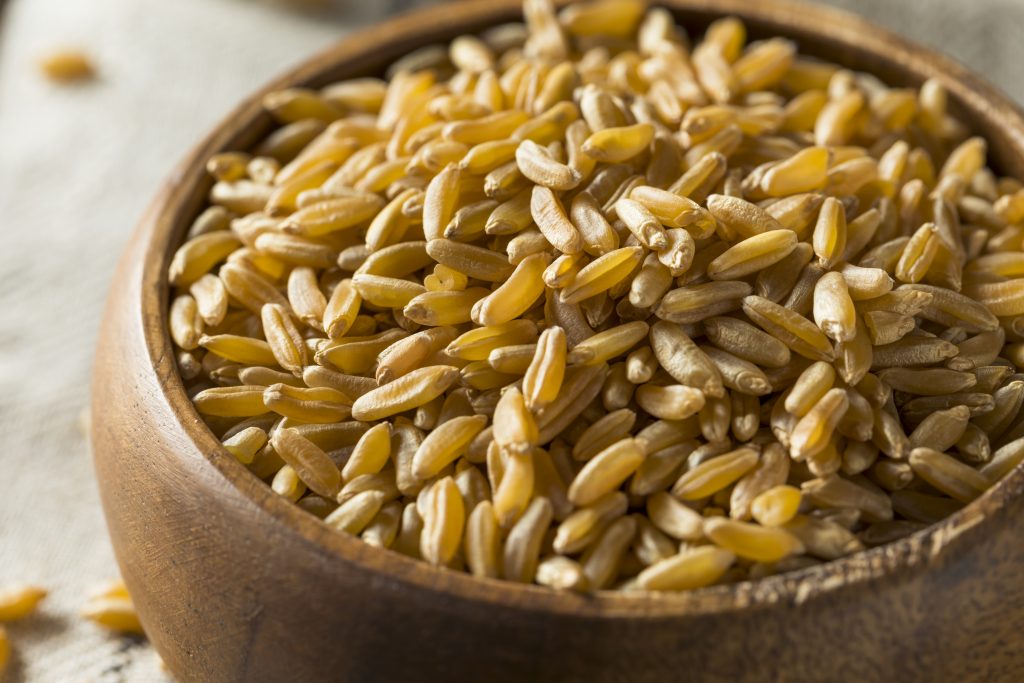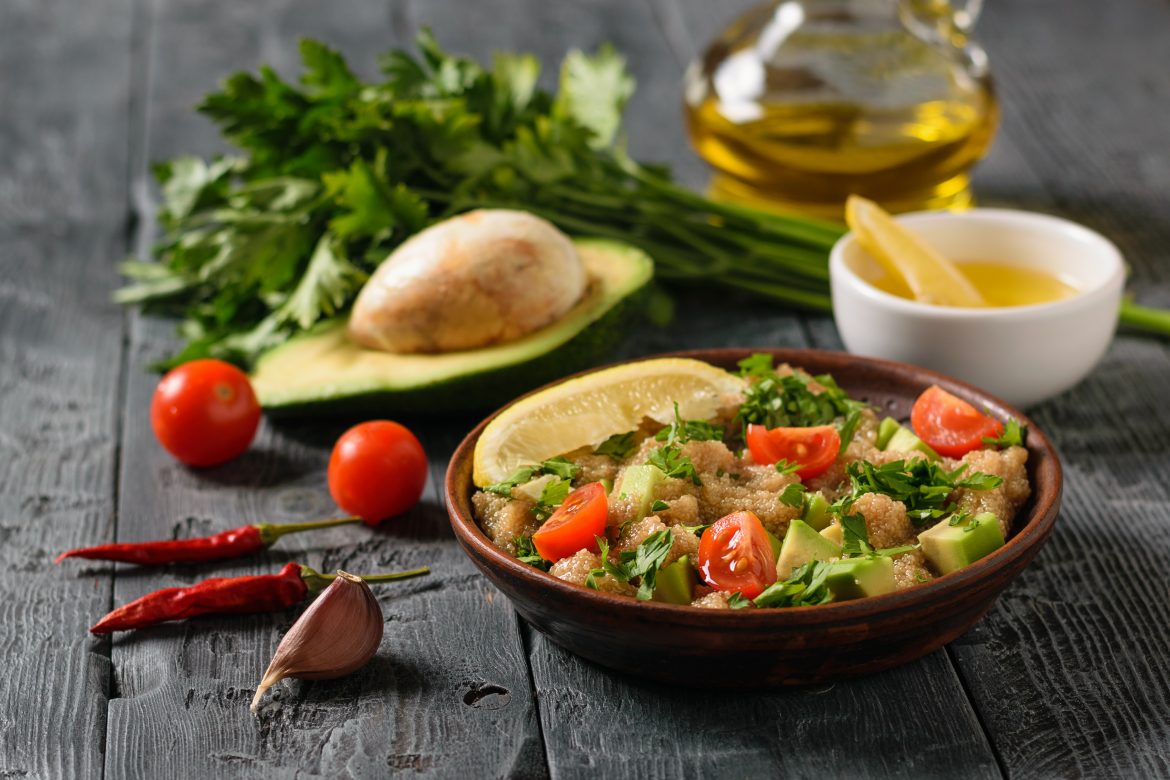It’s hard to remember a time where almost every product in the grocery store wasn’t plastered with the words “gluten-free” on the front. While recently we’ve seen many people opt for gluten-free options to lose weight, boost energy, or simply feel better since those who suffer from Celiac disease or are sensitive to gluten benefit the most from the surge in gluten-free products currently available on the market.
In celebration of National Gluten-Free Day, Eco18 has done some research into the health concerns of gluten and whether or not switching to a non-gluten diet is right for you.
First things first, what the heck is gluten? Gluten is a general name for the proteins found in wheat (wheatberries, durum, emmer, semolina, spelt, farina, farro, graham, KAMUT® khorasan wheat, and einkorn), rye, barley, and triticale – a cross between wheat and rye. Gluten helps foods maintain their shape, acting as the glue that holds food together. Gluten can be found in many types of foods, even ones that we commonly would not expect. While many people (celebs included!) have jumped on the “gluten-free bandwagon” for less serious health concerns, this doesn’t make much sense to Dr. Daniel A. Leffler, director of clinical research at the Celiac Center at Beth Israel Deaconess Medical Center in Boston. According to Dr. Daniel A. Leffler, who is also an assistant professor at Harvard Medical School, “people who are sensitive to gluten may feel better, but a larger portion will derive no significant benefit from the practice. They’ll simply waste their money, because these products are expensive.” However, a gluten-free diet is a must for those who suffer from Celiac disease.
Celiac disease is a serious autoimmune disease that occurs in genetically predisposed people where the ingestion of gluten leads to damage in the small intestine. Celiac disease is hereditary, meaning that it runs in families. People with a first-degree relative with Celiac disease (parent, child, sibling) have a 1 in 10 risk of developing celiac disease. The disease can develop at any age after people start eating foods or medicines that contain gluten. Left untreated, Celiac disease can lead to additional serious health problems.
People with Celiac disease can’t tolerate gluten, not even small amounts. Just 50 milligrams of the protein—about the amount in one small crouton—is enough to cause trouble. In people with Celiac disease, gluten triggers an immune response that damages the lining of the small intestine. This can interfere with the absorption of nutrients from food, cause a host of symptoms, and lead to other problems like osteoporosis, infertility, nerve damage, and seizures.
A related condition called gluten sensitivity or non-celiac gluten sensitivity can generate symptoms similar to celiac disease but without the intestinal damage.
Thinking about going gluten-free? Avoiding gluten means more than giving up traditional bread, cereals, pasta, and pizza. Gluten also lurks in many other products, including sauce found in frozen vegetables, soy sauce, some foods made with “natural flavorings,” vitamin and mineral supplements, some medications, and even toothpaste (who knew!) This makes following a gluten-free diet extremely challenging.
If you’re determined to go gluten-free, it’s important to know that it can set you up for some nutritional deficiencies. Fortified breads and cereals have become a major source of B vitamins in the U.S. Although bread made with white rice, tapioca, and other gluten-free flours are becoming more common; they are generally not fortified with vitamins. Whole wheat is also a major source of dietary fiber, which the bowels need to work properly. According to Dr. Leffler “the average American diet is deficient in fiber if you take away whole wheat the problem gets worse.” It’s possible to get the fiber you need from other grains, such as brown rice or quinoa, or from fruits, vegetables, and beans, but you’ll need to make the effort.
The bottom line. We are increasingly hearing about gluten-free diets even though only about one percent of the population has Celiac disease. While gluten has been linked to belly bloating, weight gain and a host of other issues, current thinking is that maybe gluten is not to blame, but it could be the hybridization of modern wheat. So, instead of opting for a gluten-free diet, start incorporating ancient grains like KAMUT® into your diet and a realistic workout routine into your daily regimen for a healthier lifestyle.

There have been a series of over 30 publications of scientific studies comparing diets of KAMUT khorasan wheat and modern wheat to people suffering from chronic ailments such as cardiovascular disease, diabetes, irritable bowel syndrome, and non-alcoholic fatty liver syndrome. The results are very consistent and show the lowering of cholesterol, especially LDL cholesterol, blood sugar, insulin, insulin resistance while increasing antioxidant capacity, Mg, Ca and Zn in the blood by diets of ancient wheat compared to diets of modern wheat. But the largest and most consistent result was the increase of anti-inflammatory markers, which were in the range of 25-40% with a diet of ancient wheat compared to modern wheat. (See Kamut.com for a list of papers and summaries)
Although Khorasan is a variety of wheat and contains gluten, people who suffer from celiac disease should absolutely avoid wheat and products containing gluten. However, for most people with non-celiac wheat sensitivities (up to 20% of the population), it’s not necessary to avoid the consumption of ancient grains. Actually, many people with sensitivities to modern wheat report being able to eat KAMUT khorasan wheat with no difficulty and that it is thus an excellent alternative to modern wheat (https://www.sciencedirect.com/science/article/pii/S0308814614019748).
Below, we’ve curated a list of gluten-free snacks for those with Celiac disease and gluten sensitivity.
CHOMPS Free Range Turkey Jerky Snack Sticks
Gluten-free, low in fat, and packed with 10 grams of protein, these convenient jerky sticks will keep you full on the fly.
Enjoy Life Gluten-Free Crunchy Cookies
A tasty gluten-free snack for those with a sweet tooth, we love these crunchy cookies by health food brand Enjoy Life also included flavors such as chocolate chip, vanilla honey graham, double chocolate, and sugar crisp mini cookies. Yum!
https://www.bestproducts.com/eats/food/g2179/gluten-free-foods-snacks-and-meals/?slide=2
Perfect Bar Original Refrigerated Protein Bar
Gluten-free, packed with up to 17 grams of whole-food protein, and absolutely delicious, these Perfect Bars are almost too perfect to be true. The ingredient list includes healthy fruits, veggies, seeds, and heart-healthy oils.
https://www.bestproducts.com/eats/food/g2179/gluten-free-foods-snacks-and-meals/?slide=4
Simple Mills Fine Ground Sea Salt Almond Flour Crackers
Do your waistline a favor: Toss out those cheese crackers drenched in saturated fat and pick up a box of these wholesome gluten-free Simple Mills crackers instead. They’re made with simple, whole ingredients like almond flour, sunflower seeds, and flax seeds, and they come in yummy flavors, including Farmhouse Cheddar and Fine Ground Sea Salt.
Quinn Classic Sea Salt Pretzels
These yummy gluten-free pretzels from Quinn are made with better-for-you ingredients, including whole grain sorghum flour, organic wildflower blossom honey, and apple cider vinegar.
We hope one of these options works for you! Which of these snacks will you be adding to your cart the next time you go grocery shopping?
 Food
Food Farmers
Farmers Sustainable Living
Sustainable Living Living Planet
Living Planet News
News